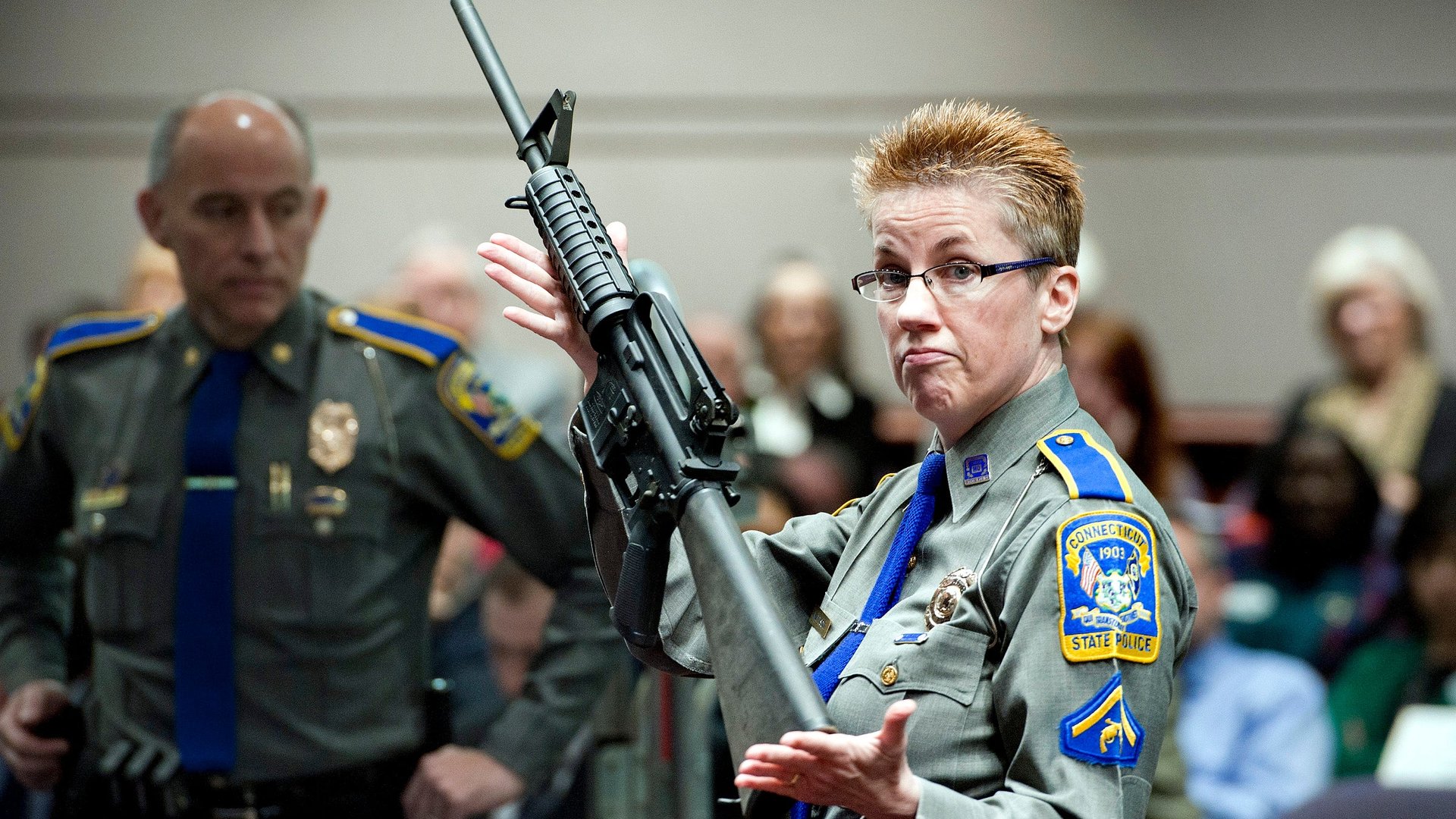The Wall Street drama behind Remington’s AR-15
It took six years for Stephen Feinberg to sell his AR-15 company.


It took six years for Stephen Feinberg to sell his AR-15 company.
Known today as Remington and formerly as gun conglomerate Freedom Group, control was acquired in 2006 by Feinberg’s private equity fund, Cerberus, named for the three-headed dog that guards the gates of hell in Greek mythology.
In 2012, a version of the AR-15 assault rifle manufactured by Remington and marketed as Bushmaster was used in a shooting that killed 20 children and 6 teachers at the Sandy Hook school in Connecticut. Cerberus said then that it would sell the gun manufacturer to avoid political entanglements. Since then, variants of the AR-15 have emerged as key components in mass shootings, killing 173 people, including at a Florida school last month.
The hell hound’s fund did not find a buyer. In 2013, the company remained profitably in Feinberg’s hands, and saw sales of its Bushmaster rifle increase as politicians debated restrictions on firearms after the massacre.

In 2014, Cerberus executives donated $15,000 to fund a campaign against Connecticut’s governor, who backed tighter regulations on gun sales.
By 2015, Cerberus had recouped the $180 million dollar investment it had initially made in the company, bought out some squeamish investors to the tune of $50 million, but still hadn’t relinquished control of the company.
In 2016, the company reported rising demand for its sales in the wake of mass killings in Paris, France and San Bernardino, California, and announced a new, lower-priced version of its AR-15 variant designed to exploit rising interest in the weapon style.
In 2017, Donald Trump was inaugurated as president, and Feinberg began talking to the White House about expanding mercenary operations in Afghanistan.
Fear of restrictions on gun purchases tends to to drive gun sales. With NRA-friendly Trump in office, Remington’s sales began to drop dramatically. In the first nine months of 2017, sales fell $177 million. It was still a profitable company, except that its owners had loaded it up with debt in typical private-equity style to divert profits to themselves. In the first nine months of 2016, the company could pay $45 million in interest to its creditors and still walk away with a $19 million profit. In the same period in 2017, Feinberg and the company’s remaining investors faced a $60 million loss.
In 2018, the company will enter bankruptcy and its creditors will take possession. Those creditors, primarily JP Morgan and Franklin Resources Group, are expected to try and roll the company over to a new buyer, perhaps the gun-maker Ruger. If they can do so quickly, it will underscore how ineffective—or uninterested—Feinberg’s ownership group was in off-loading the firm.
The new buyers may find that Trump, who surprised observers with his recent musing on seizing weapons without regard for due process, is better for the arms industry than expected. Time reports that the NRA is encouraging Republican lawmakers to talk up gun control—because it drives sales.